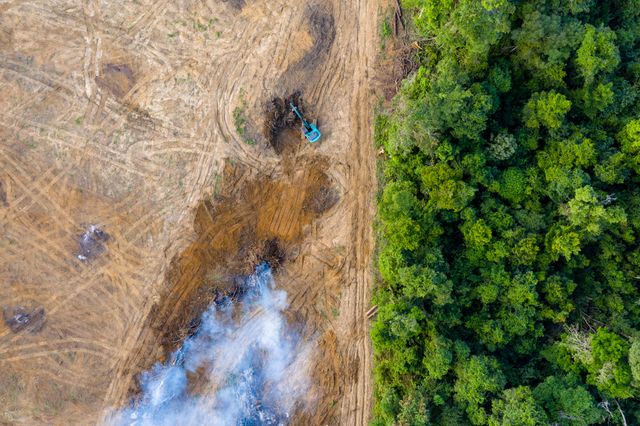The EU Deforestation Regulation is set to take effect at the end of December. As the initial compliance date draws closer and with EU elections now in the rearview mirror, calls to push back the timing seem to be growing louder, with concerns being raised over the readiness of both companies and regulators as well as the potential economic impacts of the Regulation.
The Deforestation Regulation is groundbreaking, first-of-its kind legislation that seeks to address the environmental and social impacts of specified commodities that are linked to deforestation and forest degradation. The Regulation covers cattle, cocoa, coffee, oil palm, rubber, soy(a) and wood, as well as many derived products. Covered commodities and products may not be imported into, exported from or made available in the EU unless they are deforestation-free and produced in accordance with relevant legislation in the country of production. The Regulation will require due diligence and reporting by many companies.
The Regulation is part of the EU's broader efforts to combat climate change and protect biodiversity. It is discussed in detail in our earlier Alert here.
Arguments for delaying the implementation of the Deforestation Regulation include the following:
- Market readiness: Companies will not have the systems in place or access to information needed to comply with the Regulation by the deadline.
- Economic impact: Implementation will have adverse economic effects on producers, downstream commercial customers and consumers, leading to market instability, including higher prices and trade disruptions.
- Need for clarity: Stakeholders need more clarity and guidance on the implementation of the Regulation to ensure a smooth transition.
In our many calls with companies over the last several months, it is clear that if the Deforestation Regulation takes effect on schedule, in many value chains these worries are likely to be borne out. Business groups, governments and NGOs have all expressed concern with the Regulation.
For example, a June 17 letter from Caobisco (a European chocolate, biscuit and confectionery industry trade group) to the European Commission indicates "urgent action is required from the European Commission to provide all the necessary tools and systems, as specified in the Regulation, to minimize the risk of market disruptions, food waste and unnecessary administrative burden on companies.” The letter also indicates compliance by companies is “being challenged by delays in the timely availability of all necessary clarifications and the operability of the Information System.” The letter goes into more detail on some of the areas Caobisco believes need to be addressed.
Other industries also are expressing concern. For example, a June 20 Financial Times article discusses the potential impact of the Deforestation Regulation on U.S. timber imports to the EU. According to the same Financial Times article, on May 30, the U.S. Trade Representative sent a letter to the European Commission asking it to delay the Regulation. That letter followed a March 8 letter by 27 U.S. Senators – both Democrats and Republicans – to the Trade Representative expressing concern about the potential effects of the Deforestation Regulation on U.S. paper and pulp producers. As noted in the March 8 letter, the Regulation “presents significant compliance issues due to its stringency and ambiguity.”
According to a June 11 Reuters article, in early June, the head of Coceral, a grain trade group, said the Commission and EU member state authorities are not ready to implement the Regulation. On June 5, the International Coffee Partners (a self-described partnership of seven leading family-owned European coffee companies), publicly called on the EU to extend the date of entry into force of the Regulation and to integrate a transition phase.
Not surprisingly, there also have been calls from commodity-producing countries such as Brazil, Indonesia and Malaysia to soften and/or delay the Deforestation Regulation. NGOs also have expressed concerns regarding the impact of the Regulation on workers and indigenous persons in producing countries.
Calls to push back implementation are not coming only from industry or those outside the EU. According to a June 10 post by Palm Oil Monitor, the EU Agriculture Commissioner is calling for a one-year delay and the German government has said it will not agree to implementation of the Deforestation Regulation until the risk benchmarking system contemplated by the Regulation is ready (for a discussion of the risk benchmarking system, see our earlier Alert here; according to media reports, the benchmarking system will not be ready until sometime in 2025). A March 27 EurActiv story noted efforts spearheaded by some members of the Austrian government and endorsed by Finland, Italy, Poland, Slovakia, Slovenia and Sweden to weaken the implementation of the Deforestation Regulation and loosen requirements for EU member states.
The bottom line: with time running short, it is likely this issue will soon come to a head. However, as of today, compliance is required at the end of December. Many companies have been preparing for compliance. For those that have not, with the effective date looming, the decision point is whether to begin preparing or hope for an extension or transition period.
About Our Practice
Ropes & Gray has a leading ESG, CSR and business and human rights compliance practice. We offer clients a comprehensive approach in these subject areas through a global team with members in the United States, Europe and Asia. In addition, senior members of the practice have advised on these matters for more than 30 years, enabling us to provide a long-term perspective that few firms can match.
For further information on the practice, click here.
Subscribe to Ropes & Gray Viewpoints by topic here.
Authors
Stay Up To Date with Ropes & Gray
Ropes & Gray attorneys provide timely analysis on legal developments, court decisions and changes in legislation and regulations.
Stay in the loop with all things Ropes & Gray, and find out more about our people, culture, initiatives and everything that’s happening.
We regularly notify our clients and contacts of significant legal developments, news, webinars and teleconferences that affect their industries.



